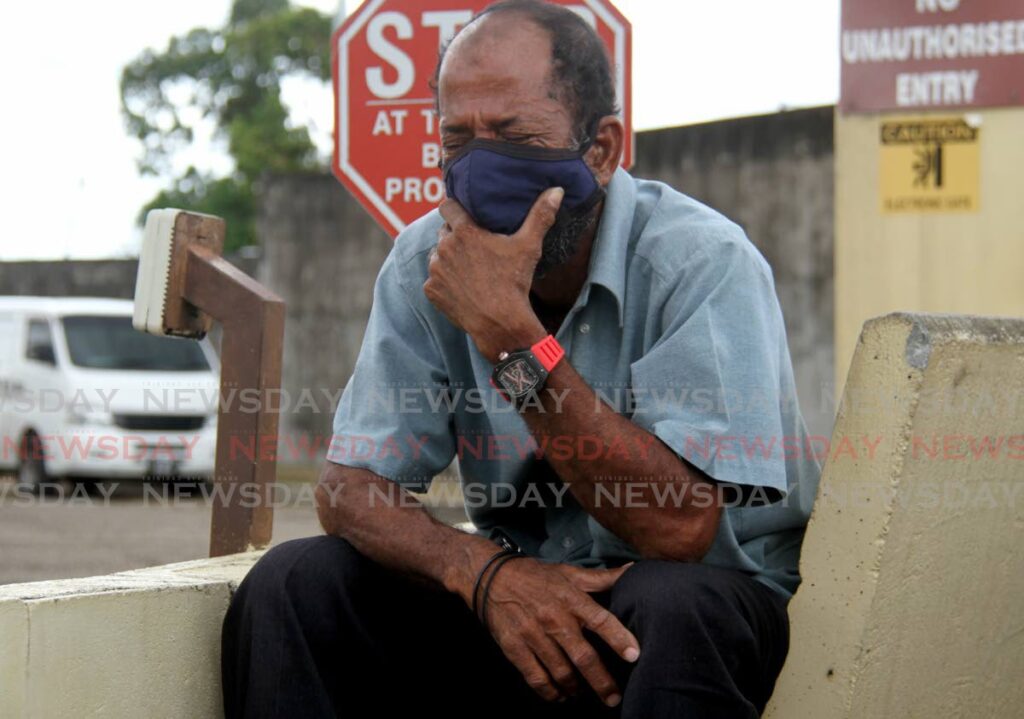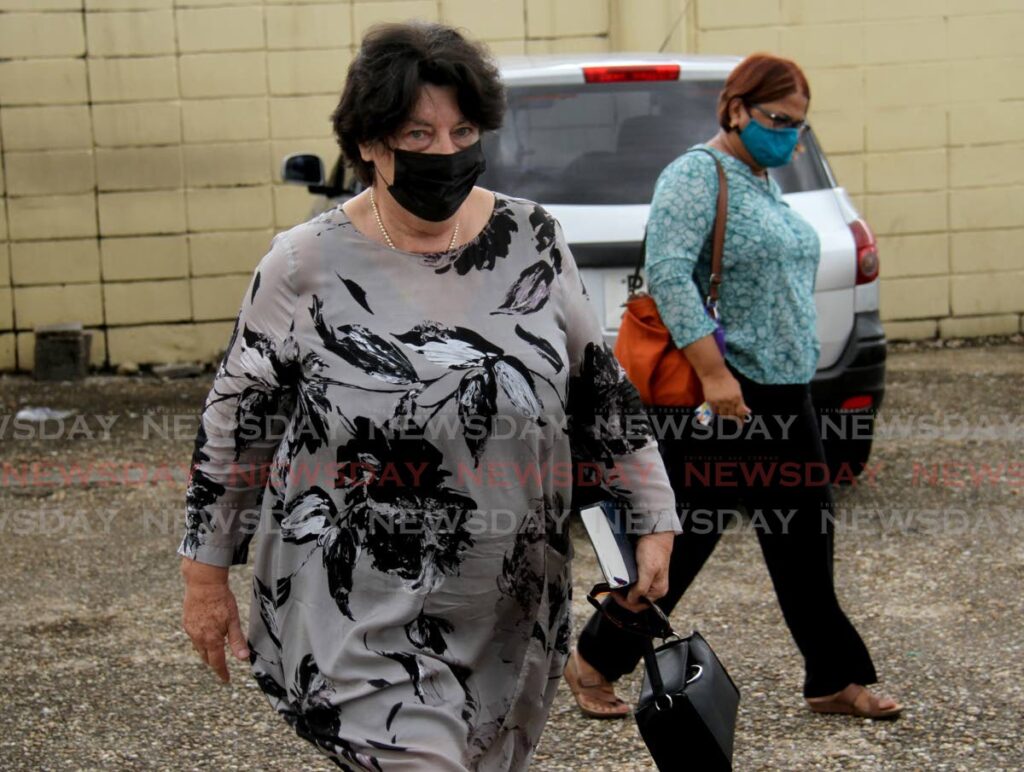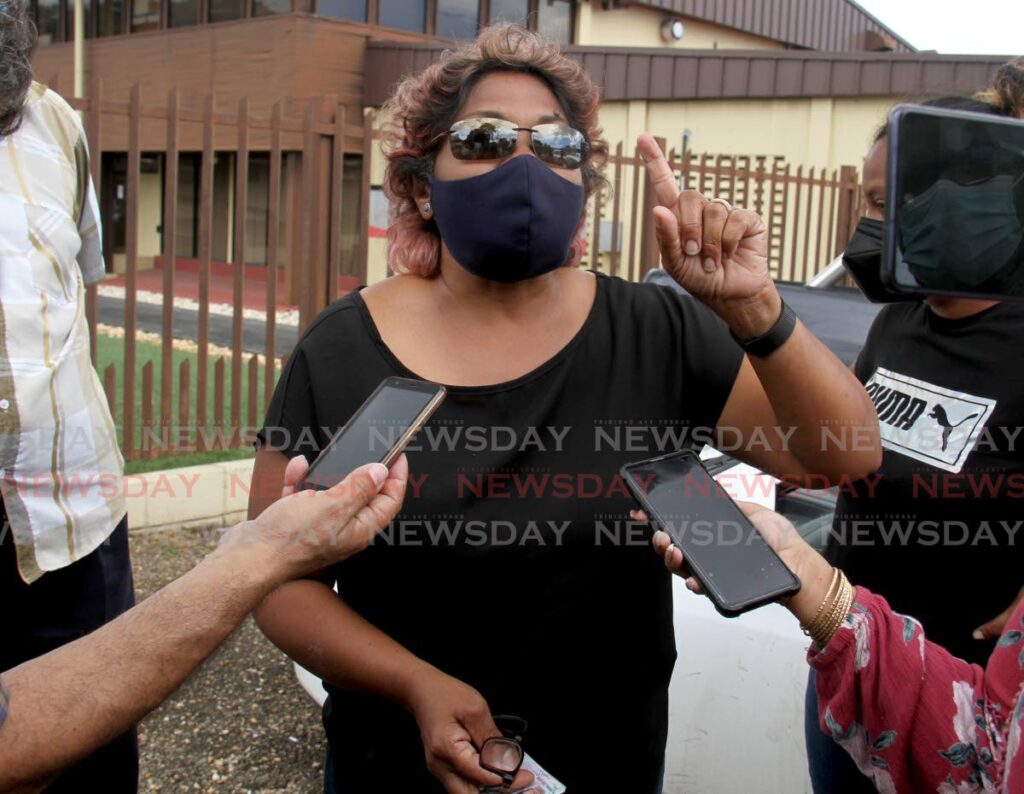Anguished relatives identify divers' bodies – FRESH TRAUMA

JOSEPH HENRY left the Forensic Science Centre (FSC) building eyes glazed as he hit his hands together in anguish five times, then held his head, looked to the skies and let out a cry of grief.
He had just seen the body of his beloved son, Yusuf, lying on a trolley.
Henry did not recognise the battered, swollen and oil-slicked body on the trolley. He knew it was his son only because he had distinctive tattoos.
Henry's trauma was similarly felt by relatives of the other two divers, Kazim Ali and Fyzal Kurban, whose bodies were also at the centre awaiting a positive identification before autopsies could be done.
On February 25, Christopher Boodram, Ali, Henry, Rishi Nagassar and Kurban were working on a 30-inch underwater crude oil pipeline in Pointe-a-Pierre when there was a sudden inrush of water. All five were sucked into the pipeline, with Boodram being the only survivor. Up to press time, Nagassar's body was yet to be recovered.
For the three families, this was fresh trauma which came after five-days of fear, hope and doubt as they held out the ultimately futile hope that their loved ones could somehow have survived being sucked into the pipeline.
Henry sat on a bench, cried out again, then rubbed his head. After some minutes of silence, he got up, spoke to relatives and then faced reporters who respectfully waited nearby.
He told Newsday of the mind-numbing shock of seeing his son's body. "I can't say I kept my composure inside," he admitted.

"As I walked in there, they (workers at the centre) warned me, they warned us (the divers' relatives). They let us know how bad it would be. The people in there warned us about what we are going to see...they warned us.
"I walked in and said, 'That is Yusuf there.' My son has tattoos on parts of his body, his chest, neck, arms. The first one I saw was on his chest. It was marked "outlaw." That's the first one I saw. I'm accustomed seeing it. I know for a surety, that it was my son.
"When I watched the face (pause), that's not my son's face. Black like night and disfigured. When I say disfigured, I mean like...faceless."
Henry said that as traumatising as the experience was for him and the loved ones of the other two men, at least there can at least be closure.
"Yusuf is dead. May God bless his soul. All the other gentlemen, may God bless their souls too, and may the families and especially the children of these dead men be protected."
He had a message to the country.
"I'm warning allyuh. The rain fell on my house today, but tomorrow it could fall on yours.

"If we stay separate and hateful as a nation, we will die one by one. Friday it (the tragedy) happened. Saturday I felt a little nice in my heart to know, 'look at how much people came to support us' but at the same time, I felt so hurt to know the company, a multimillion-dollar company could not even send a little case of water for these people
"A bottle of wrath is what I had to drink. This morning was the final draining of that bottle." Henry said he remains a God-fearing man with love for everyone.
Ali's relatives staggered out of the centre and rushed off to their vehicles, not willing to speak with reporters.
Kurban's wife, Celisha Kurban, just like Henry, told reporters she could not identify her husband by his face. "I recognised him by his watch. He still had it on his wrist."
She said the FSC staff were very helpful.
"We didn't get that help down at Paria. No help, no how, no way. No how, no help, no help. And that's it." Celisha said her husband and the others died as heroes; doing an honest job to provide for their families.
Wiping away tears, she smiled as she was asked about her husband.
"You know how most women complain about their husbands? I never had to complain one day. Never had to complain one day. I never shed a tear one day. He was a phenomenal man.
"We have three wonderful children and he never quarrelled with any of his children any day. And it's big children we have 33, 30 and my daughter is 21. He never quarrel with them. I was the pitbull in the yard."
Celisha said Kurban was very giving to his family. "Everything was, 'You want this? Go ahead nah!' Any amount of money to spend, 'Allyuh go ahead, nah'."
She fondly recalled regularly relaxing with her husband on evenings with a drink.
"Our country lost a good, good diver. He dived all over the Caribbean, St Lucia, St Martin, Tobago. He did the waterfront in Tobago for the big ships to come in, since my boy was a baby."
Asked her hopes for the investigation into the tragedy, Celisha rubbed her hand over her heart and said, "Yuh see dat, it ain't circle here yet."
Her son lamented to Newsday that the men had not been rescued.
Couva-based councillor Alan "Taxi" Seepersad, uncle of Nagassar's wife, complained to reporters about Paria's treatment of relatives of the dead men and confirmed Nagassar's body was not identified among the three bodies inside the FSC.

Comments
"Anguished relatives identify divers’ bodies – FRESH TRAUMA"